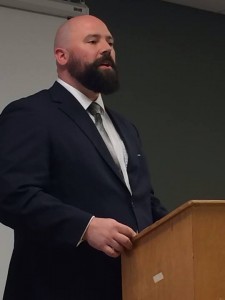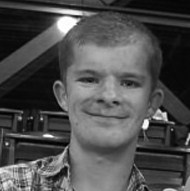 Once in a while, younger writers want to know what I have to say. Not always. Young writers really want to know what J.K. Rowling has to say, or Stephenie Meyer, or Ernest Hemingway. But sometimes, when they aren’t available (for whatever reason), they ask me how to get published. Conspicuously they do not ask me much about writing, or what it means to be a writer, but they have plenty of questions about royalties, riches, and fame.
Once in a while, younger writers want to know what I have to say. Not always. Young writers really want to know what J.K. Rowling has to say, or Stephenie Meyer, or Ernest Hemingway. But sometimes, when they aren’t available (for whatever reason), they ask me how to get published. Conspicuously they do not ask me much about writing, or what it means to be a writer, but they have plenty of questions about royalties, riches, and fame.
What they’re really asking me, of course, is how to “make it as a writer,” which means that they are really, REALLY, asking me how to get paid exorbitant sums of money for writing “this one story [they] have an idea for.” This is such a common thought among young writers (especially teens through mid-twenties) that I don’t feel it needs much more explanation since, after all, we’ve probably all had such thoughts ourselves.
But I am not a young writer. I am 37 years old. Just about every part of my body makes a sound when I move: pops, cracks, a sort of bubbly grinding sound, and sometimes a noise so strange that I am positive it is the song cancer sings while it is growing. It’s just what happens. I’ve become very concerned with a nagging pain in my right shoulder, and when I read a nutrition information label, the first thing I look for is fiber.
I am also, on this occasion, thinking about a friend from my past — let’s call him Joe because what the hell, why not? Joe fancied himself a film maker. He shot wedding videos professionally, and he had an idea buzzing around telling him to make a short film about a lawyer. He thought we could work together on it. I was 26, he was 27.
I asked Joe why he wanted to write about a lawyer. He said that he wanted to write about people who were wealthy, successful, slick, and attractive. He wanted to write about people who weren’t us.
Let me be clear: that’s fine. Learning about other people is a big part of writing. That’s exciting! That’s the craft. If we only write about, say, middle-aged alcoholics with torn rotator cuffs and occasional bouts of irregularity, we’ll find our oeuvre painfully limited and woefully under-read.
But my follow-up question for Joe revealed a critical moment for any young writer: I asked Joe what he knew about lawyers.
Joe explained a number of tropes and prejudices with which I was already familiar from watching television: lawyers drove expensive cars and lived in nice houses. Lawyers had sexy girlfriends and paid for those girlfriends’ plastic surgery with elite, no-interest credit cards. Lawyers were also evidently all male, though that may be beside the point. Lawyers have problems that are somehow more interesting than our problems as evidenced by Joe’s plot:
“A lawyer has like a problem with his girlfriend and, like, his world is falling apart. Or something like that.”
I’ve heard worse. I’ve written worse. Hell, when I was 20 I started a science fiction novel about a young space man going off to fight a space war which left him with some sort of space PTSD. It was all nonsense because I didn’t know the first thing about space, war, or PTSD, let alone any combination of the three.
But Joe’s problem, and mine, is a fundamental and critical issue in determining whether an aspiring young writer will become an accomplished old one: is she ready to accept the ultimate humility of the observer? Is she ready to learn the lessons of the world? Is she ready to surrender the self and to remain open and receptive to the world coming to presence?
When we’re young, we’re all Go! Thrust! Jump! Run! Punch! And it’s wonderful! And then after a few years we’re a little more Sit. Stop. Rest. Listen. Wait. That’s wonderful too! For a writer, the two together give us those moments of passion and their recollection in tranquility. Wordsworth figured that out centuries ago and wrote it down, but it’s a lesson we all learn and re-learn ourselves nevertheless.
This doesn’t mean anything bad for the young writer – far from it! There certainly are breakout celebrity authors and exciting young voices, and they are to be cherished. But most of us won’t be them. Most of us will spend our 24th birthday crying on the floor of our kitchens, drunk, borderline suicidal, because we haven’t “broken out” yet, and if not our 24th, then maybe 25th, 30th, 60th…I could go on.
But we write because it is what we do, right alongside suffering, listening, living, and occasionally dusting off an old cliche about writing. The more we write as young writers, even if nobody wants to read it (and they don’t), let alone publish it (and they won’t), the more ready we are when our time comes. We’ll have gained experience and context. We will have found our voice. Best of all, we will have spent our time writing!
I thought of Joe last year when I had my own dealings with a lawyer
Stan was short and paunchy, his suits looked cheap and his waistcoat (always buttoned all the way down to the bottom) strained to contain the years that had elapsed since the last time he’d bought new clothes. He spoke quickly and told terrible jokes that I’d already heard, and he knew I was only laughing to be polite, but when a man is telling you a joke to make you feel better about your dad going to prison, you laugh, and you acknowledge that he has done you that courtesy. He squeezes your shoulder and, having told you what you want to hear, tells you what you need to hear, and it’s ugly, but he’s learned his trade and how to ply it, not to wring a few more dollars from a desperate client, but to be a better person in the world, to decide, consciously, that he will grant you an unbilled half-hour so that you can grit your teeth, wring your hands, and stare at the wall for a speechless half hour. That unbilled hour may mean the difference between a new suit and wearing the old one for another month. It may mean that he drives a Ford Focus instead of a BMW, and it may mean he stays married to his wife of 27 years instead of running around with a new silicone mistress, but life is not like the movies, where enormous problems are solved in 90 minutes. Life is life. It unfolds over years.
And there’s a story there in all of this. It’s not the one Joe wanted to tell, it’s not sexy or stylish, but it’s honest, and it’s real. I’ll probably be ready to write it when I’m a little bit older.
